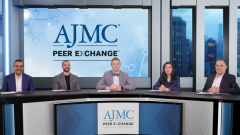
Diagnostic Challenges and Patient Education Across Skin Tones
Panelists discuss how patients with darker skin tones often experience delayed diagnosis due to misidentification as fungal infections or other conditions, emphasizing the importance of shared decision-making and patient education about the immune-mediated nature of the disease.
Content above is prompted by the following:
Patients with darker skin tones frequently experience prolonged diagnostic journeys before receiving an accurate atopic dermatitis diagnosis, often encountering multiple health care providers and incorrect diagnoses. Common misdiagnoses include fungal infections, leading to inappropriate antifungal treatments, and confusion with other inflammatory conditions like psoriasis or lichen planus. A particularly concerning misdiagnosis involves cutaneous T-cell lymphoma (mycosis fungoides), where atopic dermatitis may be incorrectly diagnosed in patients with this more serious condition, emphasizing the need for dermatologic expertise.
Many patients resort to nonmedical interventions, dietary modifications, or home remedies before entering the formal health care system, reflecting both access barriers and lack of awareness about atopic dermatitis as a treatable medical condition. This delay in appropriate medical care allows disease progression and increases the likelihood of complications, including secondary infections and psychological impact from persistent symptoms.
Andrew Alexis, MD, MPH, emphasizes shared decision-making approaches that involve educating patients about the immune-mediated nature of their condition in accessible terms. By explaining the pathogenesis and connecting symptoms to underlying mechanisms, patients better understand why specific biologics are recommended rather than viewing them as foreign or intimidating treatments. This educational approach helps patients become active participants in their care decisions and improves treatment adherence by creating logical connections between their symptoms and proposed therapies.
Newsletter
Stay ahead of policy, cost, and value—subscribe to AJMC for expert insights at the intersection of clinical care and health economics.









